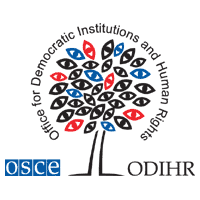OSCE ODIHR issues interim report on election observation in Belarus
EXECUTIVE SUMMARY
• On 6 June 2016, the President called elections to the House of Representatives, the lower chamber of parliament, for 11 September. Representatives will be elected for a four-year term under a oneround majoritarian system in 110 single-mandate constituencies.
• The electoral legal framework was last substantially amended in 2013. In addition, an Interagency Working Group was established in February 2016 to consider prior OSCE/ODIHR recommendations, which submitted seven proposals to the Central Election Commission (CEC) related to technical aspects of the electoral process. The CEC adopted six resolutions addressing some of these recommendations. A significant number of prior OSCE/ODIHR recommendations are yet to be addressed.
• Out of 630 nominated candidates, 521 were registered. Ninety-three nominees were not registered by District Election Commissions (DECs), mostly due to an insufficient number of valid support signatures, inaccuracies in asset and income declarations, and failure to submit supporting documentation; 16 nominees withdrew their nomination. The law gives DECs wide discretionary powers to deny registration. International and citizen observers were not always able to fully observe the candidate registration process.
• The elections are administered by a four-tiered structure including the CEC, 6 Oblast and the Minsk City Election Commissions (OECs), 110 DECs and 5,971 Precinct Election Commissions (PECs). Since the call of elections, the CEC has issued a number of resolutions and held three public sessions. DECs are supported by the local authorities, which have several election-related competencies. Only a marginal number of PEC members are from opposition nominating bodies. All commissions have so far met legal deadlines for the administration of the elections.
• There is no centralized voter register. Voter lists are compiled and updated by PECs based on data provided by local authorities. Voters may be registered prior to and on election day. The CEC announced the number of registered voters per constituency, amounting to 6,999,127 voters nationwide.
• Campaigning is strictly regulated. To date, the campaign remains largely invisible and campaign events observed by the OSCE/ODIHR EOM have a very low turnout. Several candidates stated that they have limited financial capacities following the abolishment of public campaign funding in 2013.
• Criminal offences of defamation, libel and insult exist and restrictions extend to online media. The state-owned media dominate both the broadcast and print media landscape. State media are obliged to provide equal opportunity to all candidates from the time of their registration.
• The OSCE/ODIHR EOM has been made aware of 408 applications and complaints filed with the election commissions, local authorities and courts. Most were on candidate registration, and the appointment and activities of election commissions. To date, the majority of complaints have been rejected.
Please, see full text of the Report below.


